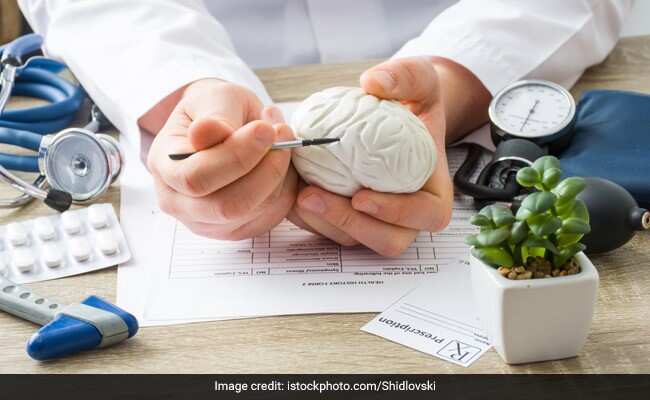World Stroke Day: During a stroke timely treatment plays a significant role in saving lives. Read here to know from doctor why it is important to keep a check on stroke symptoms during winters.

Stroke Day: Studies suggest that during winter season the risk of stroke increases
HIGHLIGHTS
- Stroke is an medical emergency which requires urgent treatment
- Delay in stroke treatment can lead to death of the patient
- A healthy diet can lifestyle can help prevent stroke risk
Brain stroke is a serious health condition when a blood vessel in the brain disrupts and bleeds or there is an interruption in the blood supply to the brain. The supply of blood and oxygen to the brain's tissues gets disrupted with this blockage. There is a lack of oxygen, brain cells and tissue become damaged and begin to die every minute. If a stroke is not diagnosed early, it can lead to the permanent brain damage or death of a patient.
World Stroke Day 2020: Risk of stroke in winter season
Usually winter sees a lot of stroke cases. In the winter season the blood pressure of the human body is observed to increase automatically hence the level of hypertension in the ones already on medication for blood thinners increases. This can be lethal for people who have had a history of a stroke or cardiac arrest.
Also read: World Stroke Day 2020: Your 6 Step Guide To Preventing A Stroke
The cold temperature leads to a contraction in the blood vessels, restricting the free flow of blood to the brain thereby increasing risk of a stroke. Additionally due to variation in the temperature the consistency of the blood becomes thicker which makes it easier to clot. Therefore it is very important that people who have either had a stroke history or the ones at high risk need to be careful whenever there are extreme changes in the weather. Quick preventive measures can be:
- Keeping BP levels in check at all times- Limiting the amount of sodium in their diet
- Try and regulate the body temperature by staying indoors - with air conditioning in the summer and heat in the winter
- Engage in mild physical activity or moderate amount of exercise

Regular exercise can help prevent stoke risk of an individual
Photo Credit: iStock
The key factors contributing to the increased risk of stroke in the winters are lack of exercise triggered as an outcome of the cold weather and subsequent high blood pressure. It is very important to understand that who can be at risk of getting stroke. While people of any age can be at risk, pre-existing co-morbidities like BP, diabetes and high cholesterol can put anybody in the high risk zone of an approaching stroke. Timely treatment within the first 24 hours of stroke provides a 70 percent chance of correcting the damage. Stroke patients can be completely cured with the help of timely treatment.
Also read: World Stroke Day 2020: What Are Your Chances Of Getting A Stroke? Know From Our Expert
Identifying symptoms and acting fast
Stroke is a medical emergency. Immediate treatment can save your life or increase your chances of a full recovery as well. That is why, it's necessary to know the signs of a stroke so you can act quickly and accordingly. Symptoms of a stroke can actually help you to identify the disease earlier so that you can go to your doctor for immediate medical treatment. Some common stroke symptoms are:
- Severe headaches
- Numbness in the body especially on face, leg and one part/side of body.
- Paralysis
- Trouble speaking or understanding speech
- Loss of vision , and sometimes the vision is black and blur
- Nausea and vomiting
- Unstable walking difficulty in maintaining body balance
- Dizziness
Some people cannot identify the symptoms and also do ignore the small issues like feeling dizzy or headache that sometimes become unnoticeable. Regular medical check-ups are important in catching problems before they become devastating.
Also read: World Stroke Day: How To Recognise A Silent Stroke? Know The Symptoms, Causes And Much More
Stroke requires a prompt treatment otherwise the symptoms can slowly result into the serious chronic diseases like brain damage , long term disability and sometimes even lead to the death.
(Dr. Vinit Suri, Senior Consultant, Neurology at Indraprastha Apollo Hospitals)
Disclaimer: The opinions expressed within this article are the personal opinions of the author. NDTV is not responsible for the accuracy, completeness, suitability, or validity of any information on this article. All information is provided on an as-is basis. The information, facts or opinions appearing in the article do not reflect the views of NDTV and NDTV does not assume any responsibility or liability for the same.
DoctorNDTV is the one stop site for all your health needs providing the most credible health information, health news and tips with expert advice on healthy living, diet plans, informative videos etc. You can get the most relevant and accurate info you need about health problems like diabetes, cancer, pregnancy, HIV and AIDS, weight loss and many other lifestyle diseases. We have a panel of over 350 experts who help us develop content by giving their valuable inputs and bringing to us the latest in the world of healthcare.













